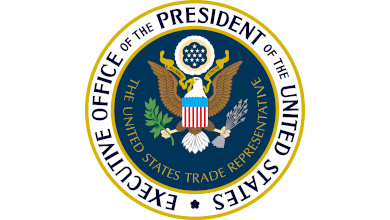The Office of the United States Trade Representative (“USTR”) announced the results of its four-year review of the continuation of Section 301 China Tariffs, according to a News & Insights report from the RV Industry Association (RVIA).
The 193-page report can be found here.
The announcement does not provide any clarity on whether USTR will further extend existing Section 301 China product exclusions that are set to expire on May 31.
Key recommendations made by the report are:
- Section 301 tariffs should remain in place.
- Tariffs should be added and/or increased to the following products, under a strategic timetable to encourage further elimination of China’s practices and policies related to technology transfer, intellectual property, and innovation. This includes:
2024
-
-
- Battery parts (non-lithium-ion batteries): Increase rate to 25%
- Electric vehicles: Increase rate to 100%
- Facemasks: Increase rate to 25%
- Lithium-ion electrical vehicle batteries: Increase rate to 25%
- Other critical minerals: Increase rate to 25%
- Ship to shore cranes: Increase rate to 25%
- Solar cells (whether or not assembled into modules): Increase rate to 50%
- Steel and aluminum products: Increase rate to 25%
- Syringes and needles: Increase rate to 50%
-
2025
-
-
- Semiconductors: Increase rate to 50%
-
2026
-
-
- Lithium-ion non-electrical vehicle batteries: Increase rate to 25%
- Medical gloves: Increase rate to 25%
- Natural graphite: Increase rate to 25%
- Permanent magnets: Increase rate to 25%
-
- An exclusion process should be established for machinery used in domestic manufacturing.
- Please note that Appendix K of the report includes a list of eligible HTS codes; Appendix L includes 19 suggested exclusions for solar manufacturing equipment.
- Customs and Border Protection should be allocated additional funding for greater enforcement of Section 301 actions.
- Greater collaboration and cooperation between industry and government is needed to combat state-sponsored technology theft.
- Continued assessment is needed for how to best approach supply chain diversification.
USTR will publish next week in the federal register procedures to comment on the proposed modifications, as well as information on the forthcoming exclusion process for machinery used for domestic manufacturing.
The White House has also published a fact sheet regarding this issue, which can be found here.
Please reach out to the RVIA’s Director of Federal Affairs Samantha Rocci at srocci@rvia.org with any questions.
